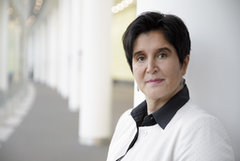
Gender equality
Editorial

Power - Pay - Participation
BY Maria Noichl
Member of European Parliament (AGRI & FEMM Committee)
Three of the main objectives of European gender equality policy are a life free of violence, economic independence and the participation in decision-making processes for all women.
While there is a consensus in the European Union, that this is the basis for an independent and self-determined life, paving the way for real equality, these are not the only rights women need to access to be completely equal in our society. A farm, as a microcosm for equality and inequality in our society, thus needs to guarantee all of this. While our idea of life on a farm often romanticises it and pictures freedom, nature, animals and human beings in symbiotic relationships, the reality often looks very different.
Living and working on a farm can be a combination of disadvantages and discrimination for a woman. As relatives to the actual owner, they often have no own income, no own account and only derived pension rights. They might be working long hours with little free time and facing rigid traditions with the older generation on the farm. Clear hierarchies and little contact with other women are only some of the everyday aspects of women working in agriculture. Furthermore, they have to carry the knowledge of losing everything in the event of a divorce: the financial security, their home, the children and their future. Poverty and social exclusion are a risk holding women back from leaving, even in the case of a violent partner. Whoever leaves, loses and has no right to ask for what they would actually be entitled to if their work had been a formal one, laying the ground for exploitation and blocking the way to justice.
Living and working on a farm can be a combination of disadvantages and discrimination for a woman.
Considering that the new Common Agricultural Policy (CAP) reform is currently being negotiated in Brussels. We, the Socialists and Democrats (S&D), have ensured a gender equality component in this text for the first time in the history of the CAP. In the future, Member States will have to provide information in their strategic plans about ensuring gender equality and promote it through special supporting measures. When it comes to the implementation of the strategic plans, we will have to keep a close eye on the Member States, ensuring they do their utmost to achieve this goal.

Women and men on farms, as in society, need to be on equal footing, taking decisions together as a team and being remunerated for their work fairly and equally. Only like this, we can be successful as a society and only like this, a farm can be successful, too.
Signed,
Maria Noichl
MEP (AGRI & FEMM Committee)
